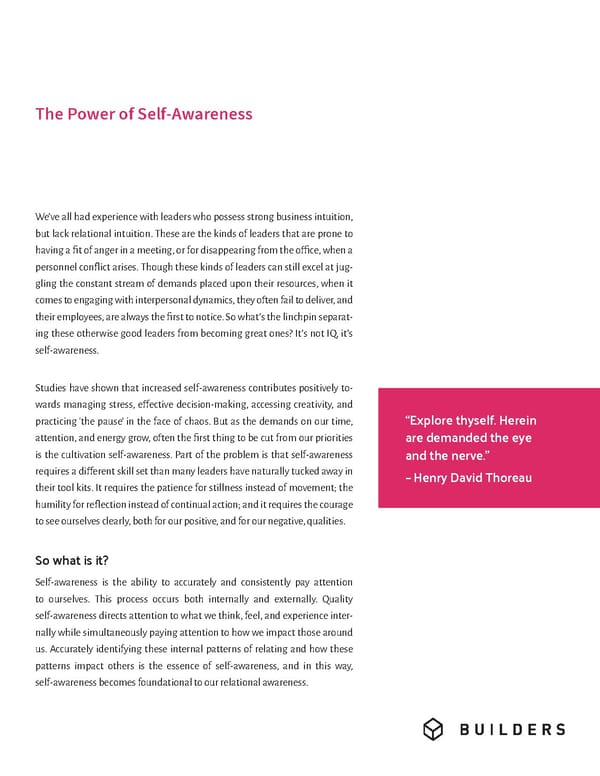The Power of Self-Awareness We’ve all had experience with leaders who possess strong business intuition, but lack relational intuition. These are the kinds of leaders that are prone to having a fit of anger in a meeting, or for disappearing from the office, when a personnel conflict arises. Though these kinds of leaders can still excel at jug- gling the constant stream of demands placed upon their resources, when it comes to engaging with interpersonal dynamics, they often fail to deliver, and their employees, are always the first to notice. So what’s the linchpin separat- ing these otherwise good leaders from becoming great ones? It’s not IQ, it’s self-awareness. Studies have shown that increased self-awareness contributes positively to- wards managing stress, effective decision-making, accessing creativity, and practicing ‘the pause’ in the face of chaos. But as the demands on our time, “Explore thyself. Herein attention, and energy grow, often the first thing to be cut from our priorities are demanded the eye is the cultivation self-awareness. Part of the problem is that self-awareness and the nerve.” requires a different skill set than many leaders have naturally tucked away in – Henry David Thoreau their tool kits. It requires the patience for stillness instead of movement; the humility for reflection instead of continual action; and it requires the courage to see ourselves clearly, both for our positive, and for our negative, qualities. So what is it? Self-awareness is the ability to accurately and consistently pay attention to ourselves. This process occurs both internally and externally. Quality self-awareness directs attention to what we think, feel, and experience inter- nally while simultaneously paying attention to how we impact those around us. Accurately identifying these internal patterns of relating and how these patterns impact others is the essence of self-awareness, and in this way, self-awareness becomes foundational to our relational awareness.
 The Power of Self-Awareness Page 1 Page 3
The Power of Self-Awareness Page 1 Page 3